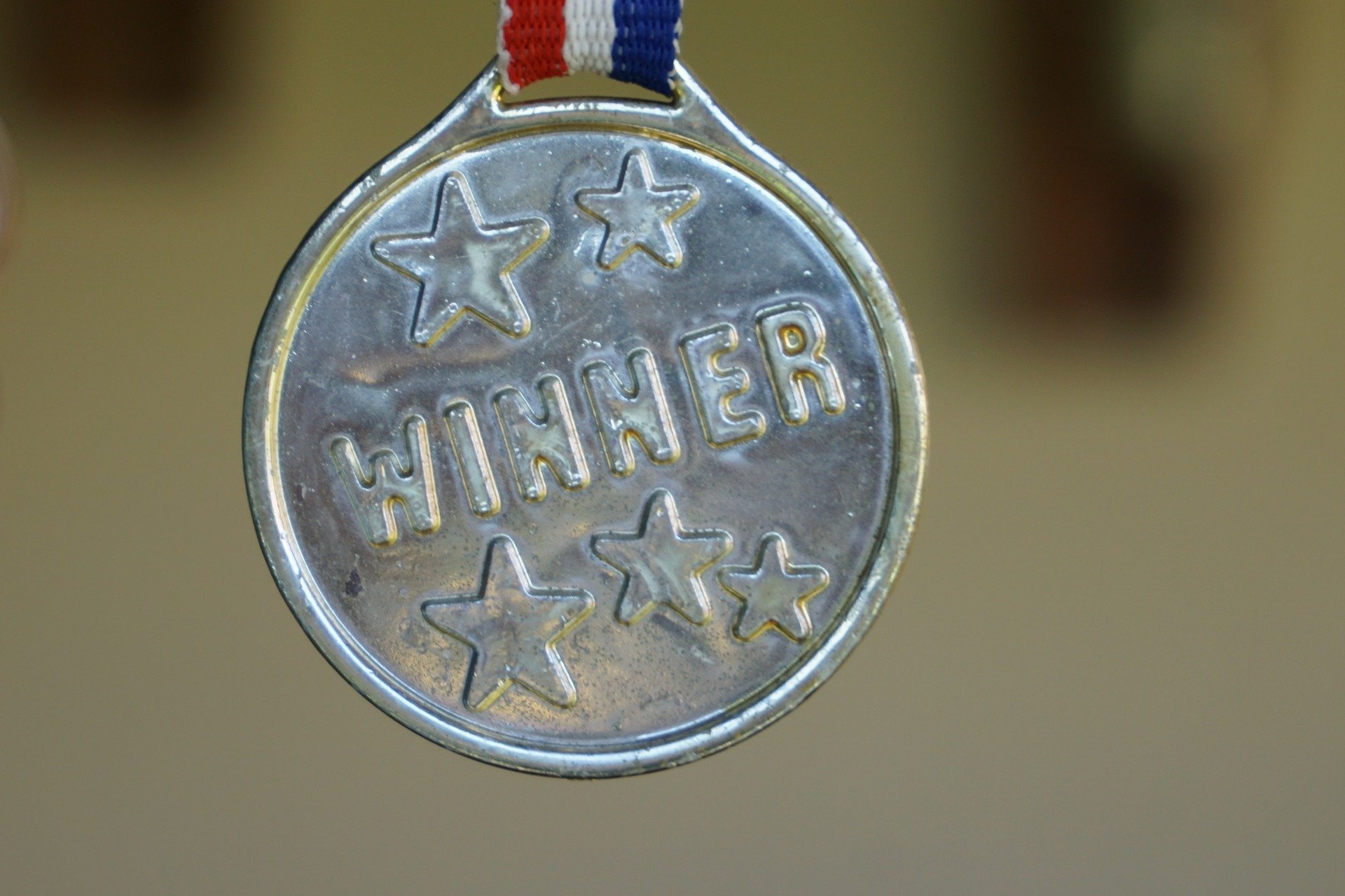As you know from the subject of some of my previous posts, I’ve been listening to a lot of podcasts recently. Usually, the podcasts I listen to fall under 3 categories: podcasts that tell good stories, podcasts that make me feel educated (because, you know, mom brain), and podcasts that focus on self-improvement (but not in a pushy, cultish sort of way).
In the latter category comes a podcast by Dr. Laurie Santos called The Happiness Lab, in which the Yale professor elaborates on the (sometimes surprising) scientific research about happiness.
One topic I listened to last week in her podcast entitled, A Silver Lining, delved into the difference in perspective between a silver medalist and a bronze medalist at the Olympics. Santos explains how certain well-known scientific studies looked at athletes’ faces at the Olympics just after they finished their particular event and at the medal ceremony. The researchers had independent people judge the medalists’ facial reactions on a scale of 1-10 with 1 being “agony” and 10 being “ecstasy.” While the silver medalists placed higher in their events, their facial expressions ranked closer to the bottom of the scale and were well below the bronze medalists. (I’m reminded of Jerry Seinfeld’s wry take on silver medalists: “Of all the losers, you came in first in that group. You’re the number one…loser. No one lost…ahead of you.”) The study concluded that bronze medalists are actually more satisfied with third place than silver medalists are with second.
It all boils down to who they’re comparing themselves to.
The silver medalist is glancing over at the gold medalist, knowing that all that separates them is a couple tenths of a point or tenths of a second. If only they hadn’t stumbled, if only they had skated a little better, the gold medal could have been theirs.
By contrast, the bronze medalist looks over at the 4th place finisher, who didn’t even get a medal, and thinks how lucky they are to have even placed in the top 3 in the first place. A few seconds’ difference, and perhaps they wouldn’t have a medal at all.
The problem, explains Santos, is in our reference points. If we compare ourselves to those who have more than us, we’re destined to a lifetime of dissatisfaction, of envy. If instead we focus on how things could have gone badly but turned out ok, we feel content.
Just think how happy someone is when they get the results back from a 6-month cancer scan that’s clean, Santos related. That knowledge that things could have gone horribly wrong – and didn’t – triggers relief.
This podcast was like a revelation to me. For years, I have thought about how important it is to be happy with what I have. I’ve even written about actively choosing to be happy and what a difference having that attitude makes in my life. It’s a work in progress, though. Choosing happiness doesn’t come naturally, I’ll admit.
But this point, about reference points, resonated. So clearly and simply.
There’s an old folk tale about a family who complains to their rabbi that their house isn’t big enough. Move the cows into your house, he tells them. They come back and tell him that their house is no bigger. Now move the goat in, he tells them. The story continues until their house is jam-packed with animals. He finally tells them to move all the animals back outside. Finally, with all the animals gone, they realize just how spacious and comfortable their little house is.
Now I’m not saying to constantly compare yourself to those less fortunate (Ok, maybe I’m saying that a little). I’m saying that all it takes a little nudge in our reference points. By knowing that it could be worse, sometimes much worse, can help us rid ourselves of the ever-present feeling of dissatisfaction for good.
In the podcast episode I referenced above, Dr. Santos interviews world champion ice skater Michelle Kwan about the 1998 Olympics. I actually watched her performance live that year. Kwan was expected to win gold at that year’s Olympics, but was beaten out by teammate Tara Lipinski. She could have been, understandably, heartbroken. But because she broke her foot earlier in the year, Kwan almost never made it to the Olympics at all. It was this knowledge, along with her love for the sport itself, that helped her navigate her second place win with grace.
It’s our faulty reference points that trip us up. We look over at the gold medal finisher next to us (or next door to us, as it were) and wish that were us. All we have to do is turn our head the other way, look at the alternative, see where we could have been but aren’t, and that will make all the difference.
